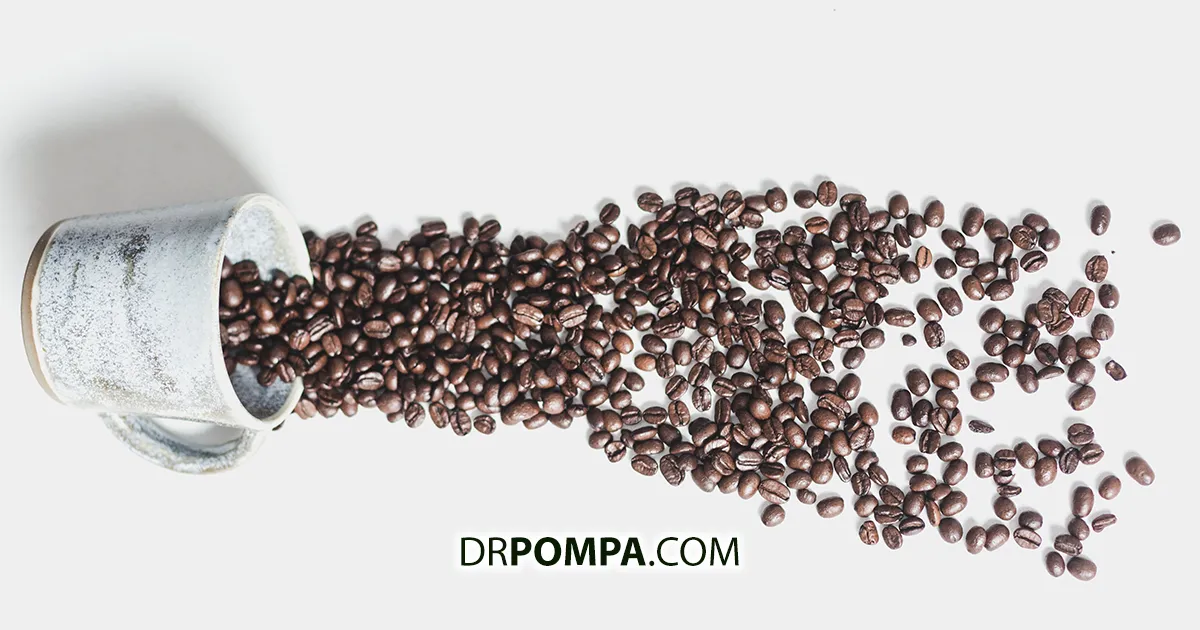Can I Drink Coffee While Fasting?
When it comes to taking care of our bodies and maintaining good health, one of the best things we can do is intermittent fast, but can drinking coffee while fasting go hand in hand?
It sounds complicated, but intermittent fasting is actually a very simple concept. The idea is to do a short daily fast, only eating during certain hours of the day. For example, food for that day is consumed between the hours of 2 and 8 pm. As you grow accustomed to intermittent fasting, you can push that window of time to be even more compressed. Some prefer to eat earlier in the day instead of the evening hours, i.e. 9 am to 3 pm, and that works too. The key is consistency and finding what works for your schedule and lifestyle. Fasting is a simple concept, but a question I get often is about coffee while fasting: “Can I have coffee while fasting?” The short answer is “maybe.” Pure water, organic coffee, tea, and other non-sugary drinks are perfectly acceptable. However, today let’s focus on coffee.
Some people are not willing to give up that morning cup of coffee. I can appreciate this! See if it works for you. For some people, caffeine increases cortisol, which in turn affects glucose. For others, they are not affected. Have your coffee ½ hour after testing your first glucose in the morning. Then test it again after your coffee. If your glucose goes up? Sorry to say this, but consuming coffee while fasting is not a good combination for you. If your glucose remains the same or goes down? You get the green light for coffee! This goes for tea as well. What about cream in your coffee? Test this as well. Sometimes black coffee on a fast is best for people, some people test better with cream in their coffee. Test your glucose 30 min after your cup of coffee, and see.
What are the Health Benefits of Drinking Coffee While Fasting?
Coffee is a controversial subject. Some tout the health benefits while others are not a fan of daily consumption. I am convinced that coffee qualifies as a health food. There have been over 19,000 studies on coffee, evidencing that it is in a class by itself when it comes to health and wellness.
Here are some of the stats on health benefits of 3-5 cups of coffee per day, courtesy of Purity Coffee:
- 40% reduced risk of liver disease
- 30% reduced risk of congestive heart failure
- 24-40% reduced risk of Type 2 Diabetes
- 30% reduced risk of Parkinson’s Disease
- 22-25% reduced risk of stroke
- 15% reduced risk of prostate cancer
- 65% reduced risk of Alzheimer’s Disease
One studies found that coffee improves focus and another study found that high decaffeinated coffee consumption was found to be associated with a lower risk of death.1
The health benefits don’t stop there.
Drinking coffee while fasting could positively affects mental and physical performance. Many people are hesitant to exercise while fasting, but coffee on a fast may be helpful here as well. Zach Bitter, an ultramarathon runner, and coach at Zach Bitter Running is a fat adapted athlete who has competed in over 40 ultramarathon competitions. One of his notable accomplishments includes running 100 miles in an American record of 11 hours, 40 minutes and 55 seconds.
During a recent interview with me, Zach admitted he doesn’t like to eat when training. He prefers to work out in the morning, and instead of eating, will have coffee on a fast with coconut or almond milk, and a bit of raw honey. He goes on to say:
“Then I’ll go out, and I’ll train hard for a couple hours, sometimes over three hours. At that point, if I slept eight, nine, ten hours the night before and ate dinner at a normal time, by the time I could get back, I’ve metabolized enough calories to almost put together a fast of over 24 hours. I think just by that lifestyle, you get really fat adapted.”
Not All Coffee is Created Equal
As we can see, coffee on a fast has many amazing benefits, but, there’s one small problem: not all coffee is created equal. Many brands are actually toxic.
Many mass produced and imported coffees (even fancy brands) contain mycotoxins, which have a negative impact on our health. These toxins are created through the way the coffee is roasted and produced (we have very low standards for accepting coffee into the US).
A shocking 95% of these mass produced coffees are heavily treated with pesticides. Over-roasting or under-roasting coffee also produces negative compounds that impact our healing while drinking coffee while fasting. Finally, if you are consuming coffee that is more than 15 days old, the lipids in the coffee can begin to turn rancid, which can contribute to inflammation in the body.
There are several toxins that are found in mass-produced coffee that everyone should be aware of:
Ochratoxin A. Ochratoxin A3 is a naturally occurring foodborne mycotoxin. OTA has been shown to be toxic and carcinogenic in animals.
Acrylamide. Acrylamide is a naturally occurring chemical, found in coffee, which has been shown to cause several types of cancers in animals. Acrylamide occurs based on poor roasting practices.
Polycyclic Aromatic Hydrocarbons (PAHs). PAH’s are found during roasting and brewing, typically when high temperature roasting for darker roasts. PAH’s are suspected to be carcinogenic and mutagenic.
Pesticides. Pesticides (also known carcinogens) may be present in many coffee brands.
Our best efforts to be health conscious can be derailed by consuming the wrong foods. That also applies to drinking coffee. While it has many benefits, the key is to only consume the organic varieties.
We must remember that not all coffees are not created equal. It is all in the proper processing, sourcing, and production of the roasted coffee beans. Of course, certain folks are caffeine/coffee sensitive, and if that’s you, please listen to your body. Also, it’s not generally recommended for pregnant women to consume coffee.
Coffee While Fasting: Sweeteners
Personally, I will use pure a little Stevia extract. However, I also enjoy drinking coffee without anything sweet in it. When I taste a black coffee, I taste a lot of the coffee. When I put the real raw cream in it, it brings on a whole other characteristic of it, and I love it that way as well. However, I am one of those people who can drink coffee while fasting, as it doesn't impact my glucose. Other great sweeteners are butter, MCT oil or coconut oil. Again, if drinking coffee while fasting, you want to test your glucose before and after having any cream, MCT oil, coconut, or natural sweeteners to see how your glucose levels respond. Keep in mind we all respond differently.
As responsible adults, it is up to us to figure out whether we can benefit from clean, health-conscious coffee consumption while fasting. We must also know our limits, and not to overdo it. Listen to your body. If you’re getting that jittery feeling, you’ve probably overdone it. If your glucose is rising, coffee is affecting your ability to reach ketosis.
Intermittent fasting is not starvation, nor deprivation.
You’re not eating less, you’re eating less often.
When you do eat, you eat delicious, healthy foods until you feel satisfied. You won’t have to fear healthy fats, grass-fed meats, organic vegetables, or strategic amounts of healthy carbs. You hold off eating to allow your body to burn its own fat, and then eat until you are full. See how your body responds to coffee while fasting, and test your glucose before and after. If your body responds positively, enjoy that cup of coffee!
Reference:
- Coffee consumption and total mortality: a meta-analysis of twenty prospective cohort studies. https://www.ncbi.nlm.nih.gov/pubmed/24279995












